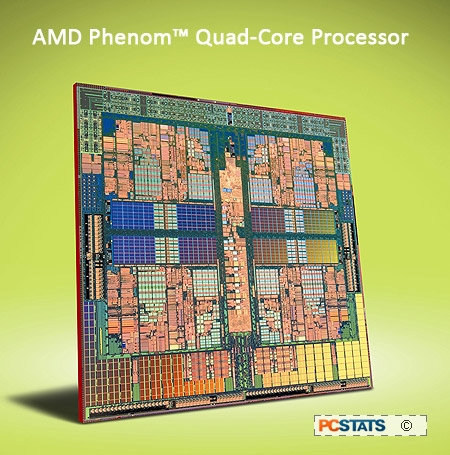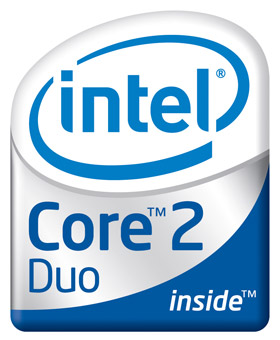 Having no preference to Intel, no
preference to AMD, allows you to understand that as a consumer,
hyper-competitive companies tend to trade market dominance from one season to
the next. 'A' is not always going to be better than 'B', and vice versa.
Having no preference to Intel, no
preference to AMD, allows you to understand that as a consumer,
hyper-competitive companies tend to trade market dominance from one season to
the next. 'A' is not always going to be better than 'B', and vice versa.
It'd be nice to have a third option, a 'C' to choose from, but sadly all of Transmeta's best technological advances have come under
the Intellectual Properly gavel. Still, the impact it had on energy efficient
processing is due more credit than history has bestowed... but that's a story
for another day.
As it stands right now, Intel dominates the processor
market - in value, in performance, in inertia. I'd be remiss to count AMD out just yet though.
AMD has been delayed by technological kinks, missed
release dates that may have kept it in lock step with its largest competitor,
and for better or worse swallowed $5 Billion in debt for ATI at the beginning of this year. There are positive signs from AMD if you know where to look though...
The AMD
690G chipset is a resounding success for example, and if Intel has taught us anything, it's that chipsets pave the path to PC dominance.
AMD has not been asleep at the wheel on the processor
front either. Much delayed perhaps, but not asleep. It is readying a
new core, called 'K10', and a slew of intermediary processors based on 'Barcelona.' Not
much is known about the performance of AMD's
upcoming 'K10' Phenom X2 and Phenom X4
desktop processors right now, but we should find out
very shortly if the 'Agena' and 'Kuma' chips will give
Intel a run for its money.
While much of AMD's success the last few years can be traced to its partners, Intel has guaranteed the success of the Core 2 Duo processor with well designed chipsets. As they say, "it's the chipsets, stupid."
 The Intel Core 2 Duo is a very efficient processor, its TDP values are roughly half of what the Pentium 4/D series use to be, and real world testing shows that complete computer systems equipped with an Intel Core 2 Duo use considerably less power.
The Intel Core 2 Duo is a very efficient processor, its TDP values are roughly half of what the Pentium 4/D series use to be, and real world testing shows that complete computer systems equipped with an Intel Core 2 Duo use considerably less power.
This is all well and good, but the real ace up Intel's sleeve is not that it has a processor which is faster by some percentage points, it's that the Core 2 Duo is faster and aggressively priced! I can't remember a time when you got so much value in a CPU for so little.
Mind you, Intel's Extreme Edition processors are still
priced in the stratosphere, but its regular desktop CPU lines are very
affordable. Compared to AMD processors in the same price bracket, Intel has the upper hand.
So as these things go, when it comes to AMD or Intel?
Intel wins this round. The bottom line is simply that Intel has outmaneuvered AMD, scrapping an entire generational branch of CPUs for a double headed offshoot that rocks. The Core 2 Duo performs really well, so it's what I've been recommending.
But before we close up this debate, there's one more
point you should consider. Along with casting away brand loyalty and
judging CPUs based on cold
hard benchmarks, there's another
option we rarely see mentioned on sites set with deconstructing the latest and
greatest technology. If the computer you have right now does what you need it
to, you really don't have to choose between AMD or Intel's latest do you? ;-)
Don't Agree? Speak up.
What do you think of the current AMD vs. Intel situation? If your opinion
differs from mine, feel free to press your case by using PCSTATS feedback
page or proving your side in the PCSTATS Forums. Find out about this and many other reviews by joining the Weekly PCstats.com Newsletter today!
Catch all of PCSTATS latest reviews right here.
Related Articles
Here are a few other articles that you
might enjoy as well...
- Computer Recycling - Where Should Old Computers Go?
- AMD
vs. Intel, Will the Best CPU Please Stand Up?
- The
Art of Overclocking; Is It For You?
- AMD
vs. Intel: It's An Eternal Struggle
- How to
Fry a 1.4GHz Athlon in 4 seconds.
